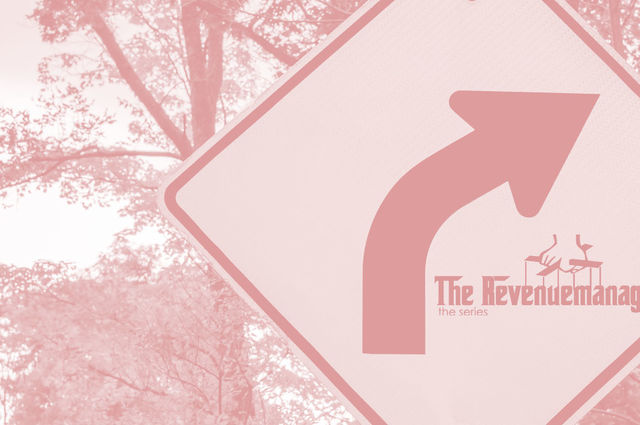How can hotels stand ahead of the curve when demand returns?
14 experts shared their view
According to Bloomberg, over 300 million doses of COVID-19 vaccines have already been administered; President Biden said the U.S. expects to vaccinate every adult by mid-May, and 53.7% of Israelis has received the first dose of the coronavirus vaccine. We are still not out of the woods, but things look brighter than they did just a few months ago. It is likely, therefore, that travel demand will slowly return in 2021, and we're already seeing some destinations with a decent pickup for the summer. With these first signs of hope, it's quite predictable that hotels will fight hard for market share, especially during this unstable year. In this particular situation, how can your hotel stand out from the crowd and stay ahead of the curve?
There is no doubt that things have changed, some permanently and some temporary. Most hotels have been cash starved and human capital starved for a long time. Doing more with less has certainly been the motto in this new environment. The 3 keys to be successful in this environment are:
- Monitor pick up very closely. We expect leisure demand to return fairly quickly once vaccinations are widely distributed and states begin easing of restrictions. Stay close to CDC guidelines as well as state and county restrictions, they will drive the impulse to book the next trip.
- Pricing and product: Guests are making booking decisions on pricing, flexibility and safety. Web browsing has increased, which means many people have been thinking about where to travel. They are slow to book rooms until they can be assured it is safe to do so. Once they do, they will commit fast. So having the right products and the right pricing has never been more critical. Guest needs have evolved and we need to do so as well. The key is optionality, whether it is dining options and setups, housekeeping or pool service make sure you are able to satisfy whichever modified service the guest is most comfortable in.
- Lastly, most hotels have significantly reduced their staffing levels for a long time. Those still working are doing multiple duties. Happy associates equal happy guests, so finding ways to keep them motivated and recognized is important.
Definitively this year, 2021 is going to be the recovery year... In some countries this will happen during this the next months, in other counties we will need to wait until the end of the season or in the worst case until the end of the year.Regardless when it happens, you will start to grow your business again. From my point of view there are some important points which help you...
- Try protect your pricing integrity and don't drive sales through very aggressive offers everywhere.You need to be very tactic... more than ever... This is going to be one of the key aspect of that recovery... you can lose your pricing position in the market in a blink of an eye if you don't protect your brand. Clients and also providers have a lot of memory so the will remember your prices for the future and it will take years to recover that pricing integrity you will lose today if you become crazy.
- Try to maintain you service and the quality of your delivery in your hotel, and of course try to improve that. Clients are impatient to travel again so treat them better than never because I think will be the best moment to retain costumer.
One of the best parts about having “snuck off to academia” a few years ago is that right now, while many of my hotel friends are fighting daily to do more with less, our shift to online learning has given me a little more time for research. And thanks in large part to the STR Share Center, by far the most rewarding for me has been to dig into previous downturn/recovery cycles, looking for lessons we can apply today. Here are my three favourites:
Constantly evaluate your future bookings using a Days Before Arrival (DBA) perspective.
Most markets have hit the post-COVID bottom but have not yet started to recover. In order to see the recovery on the horizon, when you can still react to it, versus when its upon you, it is important to reflect on future booking pace compared to the new normal, not pre-COVID historical patterns.
Fall in love with length of stay restrictions.
When demand is robust and rooms are scarce, we can drive rate. Travellers even change their patterns to fit out strategies. But in a buyer's market, it's not that way. In the previous three downturns, ADR continued growing even while occupancies plummeted, but eventually ADRs decline too, and they stay low until demand has rebounded substantially. This means that until rooms become scarce, people won't pay more. The key to taking advantage of opportunities now is filtering potential customers by their arrival/departure pattern and not their willingness to pay.
Capitalise on the shift in consumer behaviour.
There is currently an unprecedented low level of booking activity and an unprecedented high level of dreaming about travel. Most of us used to begin the travel planning process with vacation dates and a budget. Now we dream about the experience without any idea of when we will be able to go. The massive increase in social media traffic around travel is a huge opportunity for hoteliers to connect with their future guests NOW, while they are dreaming about travel. The key is to promote a unique memory, not a bed and a toilet.
Finally, while it might not be a great time to own hotels, it is about to become a glorious time for those who specialise in filling them. The strong correlations between the best parts of my LinkedIn profile and the recovery periods following the last three downturns, although freaky, make sense. For those of you who are in the process of weathering by far the toughest storm the industry has ever known, rest assured, equally epic tailwinds are just around the corner.
While there are reasons for optimism for sure, now is not the time to let up. Hard work will be required to stay ahead of the curve (or, let's be honest, with continued uncertainty, just on the curve would be great!). Guest behaviour, travel purpose and travel preferences will not be stable. This means constantly keeping track of sentiment, demand patterns, booking pace and local regulations in the context of your brand, strategy and value proposition. (Do you know what your value proposition is? Has it changed?) With this additional workload, and the obvious need for human business acumen and good judgement, revenue management in particular must preserve as much time for strategy as possible. This means delegating, automating, reducing or eliminating any tasks that are highly manual and repetitive, or not focused on revenue generation. Look carefully at every little element of the day to day activities and find opportunities to streamline. How many emails are people required to send out? Do people actually use each report? Can reports be made self service so they don't have to be manually produced and distributed? Should the revenue manager be responsible for updating the PMS, just because they know the system the best? Any task, no matter how small, that can be streamlined or removed to keep revenue managers focused on revenue generation, will be hugely beneficial in the long run.
Looking back in a few years the current period we are finding ourselves in might be called the quiet before the storm…or the great travel awakening. Over the coming months, I believe we will all be surprised by how fast travel will rebound starting first with Asia, Oceania and North America, buoyed by government incentives and a very strong desire to meet friends and families, explore the world and just “get out”. Travel will rebound in four phases: 1) Domestic Leisure and social gatherings (weddings etc.) this Summer, 2) Domestic Business in Q3, 3) International Business by Q4 and 4) International Leisure in early 2022.
For hotels, the window to define their strategies to take full advantage of the expected rebound is closing quickly. Do you understand the changes in your target customers, including micro segmentation and changed needs and drivers to travel? Do you have access to data to fully understand from where demand is starting to materialise and in what shape? Do you have the technology infrastructure in place to get accurate data and have the capability to automatically forecast and react to rapid shifts in demand? Do you have agreed commercial strategies in place for each of the distinct phases of the expected recovery, so you can implement them very quickly as changes are observed?
Do not make this year the year of lost opportunities! If you do not have your strategies well defined at this point you are quickly running out of time and will fall behind your competitors.
"No battle plan survives first contact with the enemy" (H von Moltke, German military strategist). In our western business culture, there is often a reliance on detailed plans to bend reality according to our desires. This desire is also apparent during COVID-19 and corporate offices, ownership groups are trying to get hotels to create plans to benefit from the eventual recovery.
At the same time, nobody has prior experience with a near-complete shutdown of worldwide travel, nobody knows how consumer behavior will shift, when vaccines will keep the population relatively healthy and when governments will ease internal restrictions and open international borders. Nobody has a crystal ball to get accurate information - all these plans are therefore based on assumptions with a high degree of uncertainty or simple a wild guess
Some destinations have repeatedly changed "opening" dates, governments are fickle in their approach to the matter and vaccine roll-out has not gone smoothly in some parts of the world (especially EU). While detailed tactical action plans may be an illusion, there are a few fundamentals a hotel can and should implement to be prepared for the return of business:
- Retain / Hire your staff early: many colleagues in the hotel industry have been forced to accept positions in other industries. Quite a few will not return to hotels and properties will be faced with a shortage of labor and management talent a few months after the start of the recovery. Having guests travel and a bad experience on their first trip will have negative repercussions on review scores
- Maintain contact with "old" existing guests: Hotels have gone mostly silent in the last year and very few have reached out to guests to keep in touch and update their customers on developments in the destination and the property. Now is the time to start reaching out to guests again. If the hotel does not have a CRM, now would be the time to look into this option
- Focus on shifting share rather than shifting channels: Even after travel starts to return, not every destination will immediate experience the same demand as pre-COVID. Using OTAs to move demand into a particular hotel rather than trying to shift business from OTA to direct bookings will be a more successful strategy for independents and even branded hotels. Let's face it, OTAs have reached out to consumers and they have gotten stronger after each market disruption. Hotels can use them to capture more of the limited demand. Explore options to shift share with volume accounts
- Be flexible: Do not rely on one particular plan or on pre-COVID market knowledge. Booking window, geographic sources, market-mix.. they all will be very different going forward. Everyone starts with a blank slate. Don't expect your 1-year budget you made in September to be accurate in April
- Review your product and marketing message: Leisure business will recover quicker than business travel; large conventions will not come back as soon as independent travel; short-haul holidays will be more popular than inter-continental vacations and drive-to business will come back faster in many areas than fly-in business. Advertising the size of the convention space and proximity to corporate offices may not be the best USP at this time. Find what your hotel can offer to these new guests and update your marketing materials
- Take advantage of automation in Revenue Management Systems (RMS): Excel is a great tool and still useful, but in 2021 there are systems available which can process data so much faster and more accurately than any human being. These systems will also be able to react much faster to changes in demand and make adjustments.
- Take care of the Fundamentals of the Business: Friendly staff, clean rooms, a safe environment, good quality food, knowledgeable Concierge or Sales people, answering the phone when someone tries to reach Accounting - all these will make the guest appreciate their stay and become an advocate.
- Be the "squeaky wheel", if part of a brand with several hotels in the destination
- Don't micro-manage the recovery process: If you are an owner or large corporation, trust your General Managers and Commercial Leaders to make the right decisions to capitalize on opportunities. After all, they are on the ground talking to customers and you hired them because you saw their talent. Telling them what to do or requiring a timesheet of their actions is not empowering or directs time to non-productive activities.
- Fish where the fish are: your sales team should focus on building/ strengthening relationships with accounts that have potential rather than being asked to engage in shot-gun sales blitz type of activities.
McKinsey predicted that a full recovery for the travel industry will not happen before 2024. Some destinations and countries will recover faster - places which are considered safe and healthy, have less business travel, less reliance on air access and are strong in the domestic markets. Every hotel needs to determine which type of destination they are in and set their strategy accordingly.
Know Your Customer - Understand changed needs and preferences and expectations of the stay experience. The business traveler will now travel for leisure purposes as part of many different micro segments. Identify. Communicate. Deliver
Future Trends - Keep sight of emerging and developing trends in the future. Gain market intelligence from various resources across multiple dimensions
Dynamic Competitive Sets - Move away from static competitive sets. Measure comparable markets/situations/assets across geographies to gain better understanding of how demand has developed in the recent past
Due to the pandemic, in 2020 hoteliers slashed their IT and marketing spending by over 50% compared to 2019 (STR, 2021). Due to budget constraints, this year the big question is what can hoteliers do in this environment of weak but growing travel demand and limited resources? In these difficult times launching elaborate and expensive performance marketing campaigns to acquire new guests is out of the question. Therefore, with your post-crisis marketing strategy, the goal is to achieve maximum returns with minimum budget. Here are some of these strategies and initiatives that will help you achieve that:
- Distribution Mix: In the post-pandemic world any hotelier should “own” their short-haul and drive-from feeder markets and “delegate” to the intermediaries only the long-haul and foreign feeder markets. You do that by employing solid revenue management practices and RMS technology; enforcing strict rate parity, implementing CRM program and technology to engage and retain your repeat customers, investing in digital marketing initiatives in your short-haul and drive-from feeder markets.
- Selling on Value: Hoteliers must remember and relearn how to sell on value versus price alone! Be creative: it is not difficult to figure out what customers that have been locked at home for 6 plus months – we have all been there – would love to experience at your property and its surroundings.
- Repeat Business: Focusing on your past guests and repeat business should become a top priority versus chasing new customers. Past guests and loyalty members are already familiar with the property, it's location and product, the only thing now is to convince them that the property is safe to stay at. Past guests and repeat business will rule the next 24 months!
- Content marketing: When done well, content marketing is much cheaper than performance marketing. It engages and entices the travel consumer in the Dreaming and Planning Phases and creates ready-to-book customers for the Booking Phase of the digital customer journey.
- Google My Business Listing: Monitor and respond to reviews. Google has more hotel customer reviews than all of the review and OTA websites combined! GMB directly influences travellers in the Planning Phase and creates powerful word-of-mouth effect in the Sharing Phase.
- Google Hotel Ads (GHA): Make this metasearch marketing initiative part of your efforts by joining Google's pay-per-stay GHA program. Google launched this program understanding well that a) hoteliers do not have much advertising dollars and b) travel consumers often cancel their hotel reservations due to the volatile COVID-19 situation.
Hotels should focus on forward-looking data, value, and customer journey. To stay ahead of the curve, hotels need real-time market demand data. Predictive market intelligence solutions that aggregate data across different sources (OTAs, GDSs, flights, alternative lodging, meta-review sites, etc.) such as Market Insight by OTA Insight or Market Spotlight by TripAdvisor provide valuable future demand data that help hotels to create proactive and effective pricing strategies. Hoteliers should also look for revenue management systems that base forecasts on future data sources (Lybra Assistant RMS).
Successful hotels compete on value, not price. Hotels should sell unique experiences rather than rooms and give guests a wide variety of customisation options. Experiences can be internal and external. For example, look at the guest's arrival process, find ways to make it unique and segment-specific: in-room check-in, cold towel, refreshment drink, shoulder massage in the lobby, etc. Offer cooking class with the chef and movie night at the pool during the stay. Partner with local attractions and create unique experiences for the guests: balloon flights, after-hours access to local attractions, VIP city tours with private guides, exotic car rentals for the stay, meetings with local artists, etc. The key point is that guests have to choose your property to take advantage of these offerings.
The customer journey has been affected by the pandemic. Booking a trip now requires a lot of research - restrictions, travel rules, COVID tests, quarantines, vaccination, etc. Hotels need to identify ways to give future guests all necessary trip information at the right time. It's essential to be proactive and make the planning of the trip and booking process easy for guests. Good service will always be a competitive advantage, and it should start well before the arrival.
The largest vaccination campaign in history is now underway, but at the current pace it will take years to achieve a significant level of global herd immunity. Even in the best-case scenario, 2021 will be another challenging year for hotels. Here are 5 recommendations for distribution and revenue managers who want their property to finish the year as No 1 in their comp set:
1. Secure cash flow by optimizing flexible pre-paid rates
Guests want the freedom to cancel or postpone bookings (e.g. if restrictions return), so optimal flexible rates will increase conversion. But it is critical to make your best available rates (BAR) available only as a pre-paid option, so the payment gets to your bank account the moment any booking is made.
2. Make price parity a priority
As we come out of lockdown, travellers will be more price conscious than ever, OTAs will be out to undercut prices and wholesalers will leak a lot of inventory. Monitoring rate integrity across every country and channel is a daunting prospect, but if you use a solution like FornovaDI you can identify which OTAs degrade rate integrity. Get proof of each infraction, then contact the OTA and let them know you are aware of their undercutting strategy. This is usually enough to deter them from doing it again.
3. Be seen as competitive by international guests
As travel corridors open up, you need to be competitive in your foreign feeder markets. Use a rate shopper like FornovaCI that allows you to customize the point of sale (POS), so you can see your comp set's rates as they are viewed from each country. Set country-specific rates on your contracted OTAs and your website (if it is technically possible), and make the most of running OTA promotions, such as boosters on Booking.com or travel ads on Expedia.
4. Win over business travellers
It may be negligible at the moment, but when corporate travel resumes, travel managers will be under huge pressure to keep costs down. Win over business travellers by setting a single occupancy rate and then use your loyalty scheme incentives to keep them coming back.
5. Take action on content parity
While most hotels recognize the importance of rate parity across their distribution channels, they tend to not pay attention to the widening disparity when it comes to their online directory listings. From new opening times and the introduction of touchless technologies, to Covid-19 safety protocols and flexible cancelations and refund policies - there is so much your guests need to know before booking. Without name, address, phone number (NAP), URL or other content consistency across the various channels, you will slip down the rankings in search and metasearch, your brand.com local SEO will suffer and your property's visibility will be impacted.
This is just a personal view, but with all the lockdowns and isolation, I think people are really craving experiences and human-interaction. And I know that the trend has been towards contact-less check-in and reducing staff costs, but at the same time if I had a hotel, I would try to stand out by focusing promotional material more than ever on the human experience of the guest.
First thing hoteliers should do is invest and implement technology NOW! With today's SaaS monthly fees and free trials, even in this time with little cash on hand, implementing new technology is possible and affordable. Focus on automation. What part of the process in your hotel can you automate? A simple one could be room upgrade and upsell, rather than trying at the front desk, offer it digital.
At first I think consumers will remain price sensitive, which will require hotels to be strategic with rates, or potentially keep them lower to stand out and get guests to pick their hotel. First lure them in with a good deal, so you can increase occupancy and win back the guest. Then a few days prior to arrival, offer them an upgrade, early arrival or late departure through an automated (but personalized) service. Upgrades can add 30 to 40% to the room revenue for that particular reservation, giving your ADR a nice boosted, combine that with the already increased occupancy and the hotel will see great ROI, and most importantly your guest will like the experience as well.
Those are two independent and unrelated questions.
- I think it is way too early to talk about "curves". The earliest some airlines are predicting decent business activity again is 2023 and many hotel companies predict 2025. Too much uncertainty and so far the "holy grail = vaccine" has not had any major effect. And with governments pulling back subsidies there will be more horror stories to come. We haven't even dealt with all the damage that already has been done. Hotels will need time to recover and as much as people want to travel there will be hurdles along the way.
- How to stand out? And this is by far nothing new and could have been written 10 years ago: Be authentic and get rid of the believe that everyone needs to be your customer. You are not for everyone. You are suited for some guests better than others, period! Find your own perfect customer and then go after them with all you got. Better to have raving fans than trying to have half happy guests??? And if the hotel really has nothing that makes them unique besides price dropping then shouldn't that ring alarm bells?
- Don't forget you are also a guest! Your guests might have had it as hard as you. They are coming to you to escape. Make it special.
Chances are you need to get more done with fewer people. Less staff for obvious reasons and "more done", well, your competition is not sleeping either... Evaluate your SOPs. Which tasks can be automated and what can be fully eliminated? Where can technology help to improve efficiencies? And a fresh set of eyes may work wonders in boosting your hotel's productivity.
A lot of the insights revenue managers have typically gained from historical data have lost relevance. Instead, revenue management needs to shift to forward-looking data and recent short-term micro trends.
Solid market intelligence, there are several powerful tools available, will allow your hotel to quickly respond to trends and changes in your market.
Given that a lot of our past knowledge about our hotel can be thrown overboard, business intelligence tools have become more important than ever. These tools will allow you to gain detailed insights about your business as it is today and moving forward and not how it was back in 2019.
Hotels spend a lot of money on acquiring new guests. A solid direct booking strategy backed by the right technology is going to make an important contribution to reducing profit erosion. Some amazing booking engines have emerged which will help you considerably in driving conversion.
It is far cheaper to keep an existing customer than to acquire a new one. Those hotels which use CRM technology have a serious competitive advantage here.















